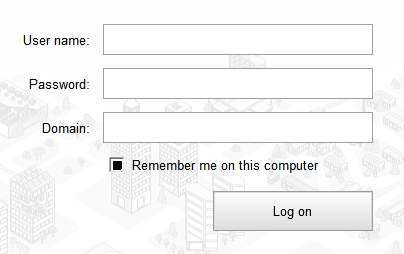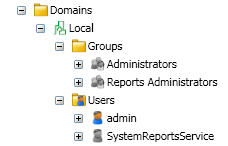Log on to rate and give feedback
1
2
3
4
5
Log on to rate
0

How to
Products:
WorkStation, WebReports
Functionalities:
Reports
Product version:
1.8, 1.9
2/4/2014
Logging On to WebReports
You log on to the WebReports Web site when you want to view and customize reports using your web browser. If you log on using an administrator's account, you can also create schedules, upload images, create report packs, rename and delete custom reports, and assign templates to be used with default reports.
To log on to WebReports
In the address bar of your Web browser, type the WebReports URL, for example, http://10.159.17.246/SchneiderElectric/WebReports.
In the User name box, type your WorkStation user name.
action_zoom_plus_stroke 
In the Password box, type your WorkStation password.
In the Domain box, type a domain name. If you do not enter a domain name, you are logged on to the local domain.
Select Remember me to save your user name.
Click Log on .
 WebReports User Accounts
WebReports User Accounts
 WebReports Log On Dialog Box
WebReports Log On Dialog Box
